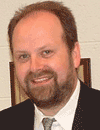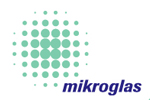08:00 | Registration |
09:00 | 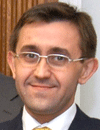 | Keynote Presentation Synthesis and Scale-Up in Continuous Flow Reactors
Paul Watts, Distinguished Professor and Research Chair, Nelson Mandela University, South Africa
The application of micro reactors to efficiently optimise reactions will be described. The talk will be extended to address how the data can be used to scale a chemical process. |
|
|
Session: New Directions in Flow Chemistry |
| |
09:30 | Recent Advances in Synthetic Photochemistry in Microflow Systems
Tim Jamison, Professor, Massachusetts Institute of Technology, United States of America
In the past few years photochemistry has played an increasingly important role in continuous flow organic synthesis. Case studies of our recent investigations in this area, with an emphasis on catalysis and multi-step synthesis, will be presented. |
10:00 | Enabling Chemical Synthesis through Flow Chemistry
Paul Richardson, Senior Principal Scientist, Pfizer Worldwide Research and Development, United States of America
This talk focuses on recent Flow Chemistry carried out at Pfizer-La Jolla. In particular, the continuing development of the Accendo Flow Reactor, and the transition from Medicinal to Process Chemistry of chemistry amenable to Flow will be highlighted. |
10:30 | Coffee and Networking in the Exhibition Hall |
11:15 | Some Like it Hot - Scaling Microwave Chemistry Using High-Temperature/Pressure Flow Reactors
C. Oliver Kappe, Professor and Scientific Director, Center for Continuous Flow Synthesis and Processing, University of Graz, Austria
Microwave chemistry has now become a standard technique in most academic and industrial labs to run batch reactions on a laboratory scale. In this talk the translation of microwave batch chemistry on the mg or g scale to the kg scale and beyond using conventionally heated high-temperature/high pressure flow reactors will be discussed. |
12:15 | 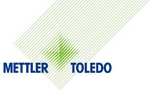 Technology Spotlight: Technology Spotlight:
Enhanced Development and Control of Continuous Processes
Dominique Hebrault, Senior Technology and Application Consultant, Mettler Toledo AutoChem Inc
One of the main analytical challenges for continuous chemistry is real-time inline monitoring for enhanced understanding and control of reactions, especially when dealing with multistep sequences. This presentation will discuss ReactIR™ in situ IR spectroscopy and the latest flow chemistry technology available as well as case studies showing how this technology monitors and provides reaction feedback on control parameters for immediate understanding and optimization of processes.
|
12:30 | Lunch and Networking in Exhibition Hall |
13:00 | 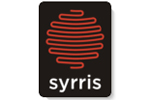 Free Workshop Free Workshop
Flow Chemistry Workshop
|
13:30 | Poster Viewing |
14:30 | 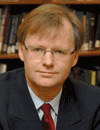 | Keynote Presentation One Flow Chemistry Platform for Discovery and Production: From Milligrams to Kilograms
Michael Organ, Professor, York University, Canada
This presentation discusses advances made using microwave irradiation to promote chemical transformations in flow. In particular, high temperature/high pressure transformations will be highlighted with an emphasis on reactor design. |
|
|
Session: Meso Flow Chemistry |
| |
15:00 | Flow Chemistry as an Enabling Technology for Synthesis: Organic Chemistry and Beyond
Nicholas Leadbeater, Associate Professor, University of Connecticut, United States of America
The use of flow chemistry as an enabling technology for synthesis in our laboratory will be discussed. Topics will include: transitioning microwave-mediated synthesis to conventionally-heated flow, meso-scale synthetic transformations using reactive gases, organometallic synthesis, methods to resolve solubility issues in flow, and recent unpublished developments. |
15:30 | Coffee and Networking in Exhibition Hall |
16:15 | Optimizing Acid-Catalyzed Reactions with a Continuous Flow Microreactor
Paul Floreancig, Associate Professor, University of Pittsburg, United States of America
This talk will describe the construction of a simple flow reactor with online detection capacity and its application to mechanistic analysis and optimization of acid-catalyzed reactions. |
16:45 |  | Keynote Presentation Application of Microfluidics in Multidimensional Reaction Screening
Aaron Beeler, Assistant Professor, Boston University, United States of America
At the Center for Chemical Methodology and Library Development at Boston University we have implemented an automated microfludics platform utilized in the discovery of new chemical reactions and chemotypes. We have most recently adapted the platform to enable photochemical multidimensional reaction screening. This lecture will outline the design of the photochemistry module and results derived from reaction screening. |
|
17:15 | Exothermic and Hazardous Chemistry in Continuous Flow
Cara Brocklehurst, Investigator III, Novartis Pharma AG, Switzerland
This talk will demonstrate the use of a R2C/R4 Vapourtec machine in the scale up of a range of challenging reactions including a troublesome nitration involving a potentially explosive mixture of acetic and fuming nitric acids. |
17:45 | End of Day One |





